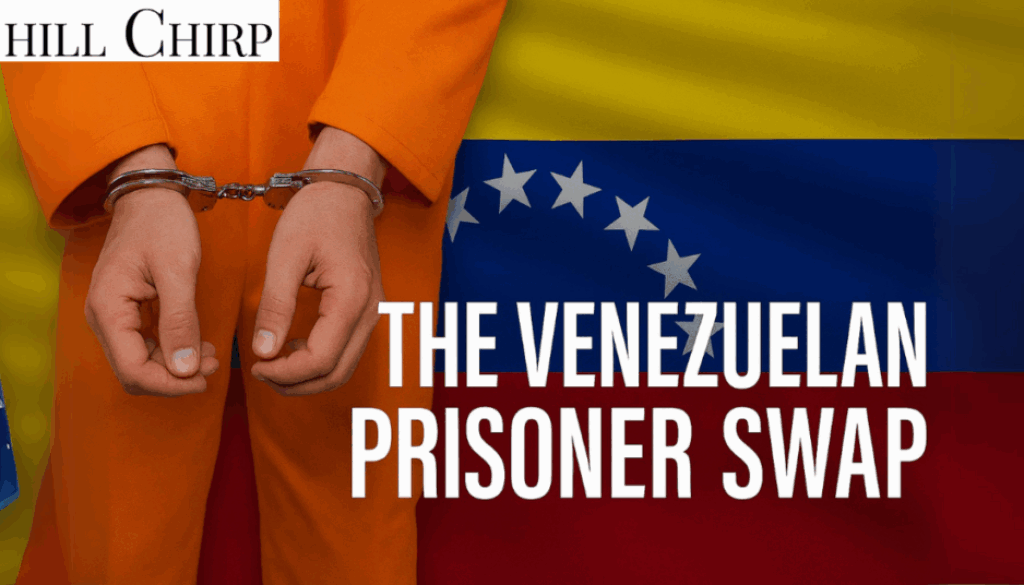Breaking Down the Venezuelan Prisoner Swap: What It Means for International Diplomacy in 2025
Breaking Down the Venezuelan Prisoner Swap: What It Means for International Diplomacy in 2025
The Venezuelan prisoner swap has once again brought global attention to the complex and often controversial diplomacy between the United States and Venezuela. As nations navigate power, politics, and policy, this high-stakes exchange of detainees in 2025 is not just a regional event—it’s an international case study on negotiation, human rights, and strategic leverage.
In this in-depth article, we explore the details, significance, and ongoing developments of the Venezuelan prisoner swap, focusing on the key players, underlying motives, and impacts on future diplomatic strategies.
Table of Contents
- What Is the Venezuelan Prisoner Swap?
- Timeline of Events Leading to the 2025 Swap
- Key Figures Involved in the Exchange
- Political Motivations Behind the Prisoner Swap
- Reactions from the International Community
- How the Swap Impacts U.S.-Venezuela Relations
- Comparisons with Past Prisoner Swaps
- Human Rights Implications
- Venezuela’s Diplomatic Strategy: What’s Next?
- Related News and Trends: El Salvador & Bukele
- Frequently Asked Questions (FAQs)
- Final Thoughts
- Engage With Us (Call-to-Action)
What Is the Venezuelan Prisoner Swap?
The Venezuelan prisoner swap refers to the exchange of detainees between Venezuela and another nation—most commonly the United States—as a strategic and often politically motivated act of diplomacy. These exchanges typically involve individuals accused of espionage, corruption, drug trafficking, or politically sensitive offenses.
In 2025, the latest swap involved Venezuelan nationals held in the U.S. and American citizens imprisoned in Venezuela, some of whom were detained under ambiguous or politically charged circumstances.
Why This Swap Matters
- Reflects shifting diplomatic stances in Latin America
- Signals possible cooperation or negotiation channels between adversaries
- Impacts humanitarian efforts and international law precedents
Timeline of Events Leading to the 2025 Swap
Understanding the sequence of events leading to the current Venezuelan prisoner swap provides essential context:
- January 2024: Tensions rise following sanctions reimposed by the U.S.
- March 2024: Secret diplomatic talks initiated in Geneva
- October 2024: Venezuelan authorities signal willingness to negotiate
- March 2025: Agreement reached to release selected detainees on both sides
- April 2025: Prisoner swap executed and announced
Key Figures Involved in the Exchange
The Venezuelan prisoner swap involved several high-profile individuals:
On the Venezuelan Side:
- Alex Saab: Alleged financier with connections to President Nicolás Maduro
- Two former military officers detained in U.S. for drug trafficking
On the U.S. Side:
- Matthew Heath: Former Marine jailed in Venezuela since 2020
- Two U.S. oil executives detained on charges of corruption
Keyword Focus: The Venezuelan prisoner swap emphasized mutual political concessions and raised questions about the motivations behind each detainee’s release.
Political Motivations Behind the Prisoner Swap
The 2025 Venezuelan prisoner swap is as much about geopolitics as it is about human lives. Both the U.S. and Venezuela saw strategic gains:
U.S. Objectives:
- Recover American citizens viewed as political pawns
- Signal readiness for humanitarian diplomacy
Venezuela’s Goals:
- Regain loyal operatives and reduce international pressure
- Normalize relations for future oil and economic negotiations
Bold Takeaway: The swap was less about justice and more about calculated political benefit.
Reactions from the International Community
The international response has been mixed, with praise from humanitarian organizations and criticism from political opponents.
Supportive Views:
- United Nations Human Rights Council applauded the humanitarian aspects
- NGOs like Amnesty International highlighted detainees’ release as a victory
Critical Reactions:
- Critics in both countries accused their governments of compromising values for political convenience
- Opposition groups fear swaps might encourage authoritarian regimes to use hostages as bargaining chips
How the Swap Impacts U.S.-Venezuela Relations
Following the Venezuelan prisoner swap, experts believe that a new diplomatic window may be opening.
Potential Outcomes:
- Resumption of formal negotiations on sanctions and trade
- Renewed talks on human rights monitoring
- Possible U.S. involvement in Venezuela’s 2025 elections as observer
Comparisons with Past Prisoner Swaps
Previous Examples:
- 2022: Release of Citgo 6 executives for relatives of Maduro
- 2018: Joshua Holt returned to U.S. amid secretive negotiation
What Makes 2025 Unique:
- Higher number of detainees involved
- More transparent diplomatic process
- Inclusion of regional mediation by Colombia and Brazil
Human Rights Implications
The Venezuelan prisoner swap has reignited debates over human rights enforcement:
- Are prisoner swaps ethical when involving non-violent political prisoners?
- Do such swaps legitimize wrongful detentions?
Many activists argue that without reform, prisoner diplomacy risks incentivizing arrests of foreign nationals for future leverage.
Venezuela’s Diplomatic Strategy: What’s Next?
This event is part of Venezuela’s broader strategy to reposition itself globally:
- Diversifying allies: Engaging with Russia, Iran, and now warming ties with U.S.
- Leveraging oil reserves for political capital
- Using soft diplomacy, such as humanitarian releases, to improve public image
Related News and Trends: El Salvador & Bukele
While Venezuela makes headlines for its prisoner diplomacy, El Salvador’s President Nayib Bukele is reshaping Central American politics:
- Crackdown on gangs gaining international attention
- Controversial policies spark debates on democratic backsliding
Relevance to Venezuela:
- Both leaders use strongman tactics mixed with strategic diplomacy
- Signals a growing trend in Latin America of centralized power with populist appeal
Frequently Asked Questions (FAQs)
What is the Venezuelan prisoner swap?
It is a diplomatic agreement involving the exchange of prisoners between Venezuela and another country, usually for political or humanitarian reasons.
Who was involved in the 2025 swap?
Key figures included American detainees like Matthew Heath and Venezuelan political operatives such as Alex Saab.
Why do countries agree to prisoner swaps?
They are often used to resolve political impasses, release unjustly detained individuals, or gain strategic leverage.
Is prisoner swapping legal?
While not illegal, it operates in a legal gray area often governed by executive orders and bilateral agreements.
Final Thoughts
The Venezuelan prisoner swap of 2025 is a complex tapestry of politics, diplomacy, and human rights. While the humanitarian outcome is worth acknowledging, the long-term implications on international diplomacy cannot be ignored.
As prisoner swaps become more frequent tools of negotiation, global leaders must consider ethical frameworks and strategic impacts. The coming months will reveal whether this exchange marks the beginning of improved relations—or another temporary détente.
Related Articles
- The Last of Us: Unraveling the Legacy, Characters, and Controversies of a Gaming and TV Phenomenon
- How Old is Piper Rockelle in 2025? Age, Family, Net Worth & More
Engage With Us
Have thoughts on the Venezuelan prisoner swap? What do you think it means for global diplomacy? Share your views in the comments below.
👉 Subscribe to our weekly Chill Chirp for expert insights on diplomacy, international politics, and Latin America trends.



